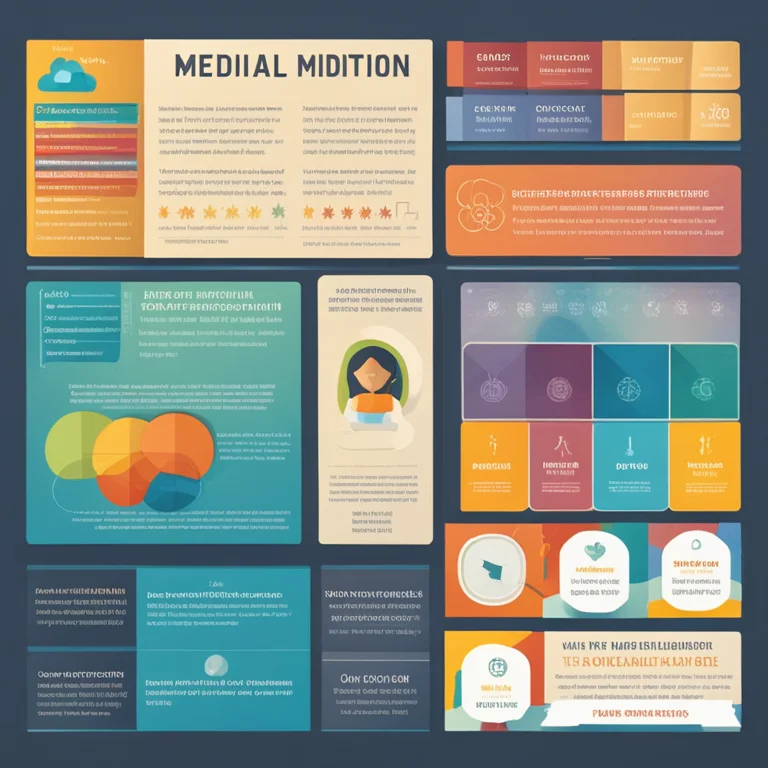
Between Meditation & Brain Functions
Discover how regular meditation practice can reshape brain structure and enhance cognitive abilities, impacting overall well-being.
article by Hina Kurosawa
The Science Behind Meditation and Brain Health
Meditation, once an esoteric practice rooted in various cultural and religious traditions, has now become a widely embraced tool for enhancing mental health. Neuroscientific research utilizing advanced brain imaging technologies has provided substantial evidence that meditation can lead to profound changes in brain structure and function. These alterations are not merely transient states but can translate into long-term improvements in cognitive performance, emotional regulation, and stress resilience. As we progress further into the decade, our understanding of these brain changes becomes increasingly nuanced, revealing the potential of meditation as a powerful modality for mental wellness.

Neural Plasticity and Meditation
One of the most significant findings regarding meditation and the brain is the concept of neuroplasticity. Neuroplasticity refers to the brain's ability to reorganize itself by forming new neural connections throughout life. Regular meditation practice has been shown to enhance neuroplasticity, leading to increased density in areas of the brain associated with attention, self-awareness, and compassion. Furthermore, meditation can decrease the volume of the amygdala, the region related to fear and stress reactions, which may explain the calming effects reported by many practitioners. In 2024 and beyond, these insights continue to underscore the potential therapeutic benefits of meditation.

Enhanced Cognitive Functions
Beyond its effects on brain structure, meditation also influences cognitive functions. Studies indicate improvements in memory, attention span, and executive function among those who meditate regularly. Notably, older adults who engage in mindfulness practices show a slower rate of cognitive decline, suggesting that meditation could play a role in preserving mental sharpness and delaying the onset of age-related neurodegenerative diseases. As meditation gains popularity, it's no surprise that techniques such as mindfulness-based stress reduction (MBSR) are being integrated into health care to bolster cognitive health.

Meditation's Role in Emotional Well-being
The emotional benefits of meditation are perhaps as compelling as the cognitive ones. Long-term meditators often exhibit increased levels of happiness and reduced symptoms of depression and anxiety. This is thought to stem from meditation's ability to modulate activity in the brain's default mode network (DMN), which is active during self-referential thoughts and mind-wandering. By reducing DMN activity, meditation promotes a state of present-moment awareness that is associated with psychological well-being. With mental health challenges on the rise, meditation offers a promising, accessible intervention.

Stress Reduction and the Relaxation Response
The relaxation response—a physical state of deep rest that alters the physical and emotional responses to stress—is one of meditation's most well-documented effects. When individuals meditate, they can effectively manage stress hormones such as cortisol, leading to a more balanced state of mind. The relaxation response not only alleviates immediate stress but may also improve stress-related health issues, including hypertension, anxiety disorders, and insomnia. Additionally, meditation's role in pain management has gained attention, as it can help decrease the subjective experience of chronic pain.
Meditation in the Modern World
As we continue into the 2020s, meditation has been interwoven into many aspects of daily life, from corporate wellness programs to educational settings. With a growing body of scientific evidence supporting its wide-ranging benefits, meditation is now recognized not as a mere trend but as a valuable practice for lifetime well-being. Its non-invasive nature and adaptability make it a resource that individuals can utilize regardless of age, background, or health status, marking a shift toward a more holistic approach to health care.
Published: 1/9/2024
Modified: 1/9/2024
More predictions
Come back here soon to learn more about yourself and your future


Serenity Through Meditation Retreats
Embark on a transformative journey at a meditation retreat to recharge, refocus, and reconnect with your inner self.


Mindful Rest: Integrating Meditation & Sleep for Well-being
Discover the synergy of meditation and sleep in enhancing mental, emotional, and physical health. This article delves into practices that combine these powerful restoration tools.


The Harmony of Meditation and Sleep
Discover the synergistic benefits of meditation for enhancing sleep quality and overall well-being in this insightful article.